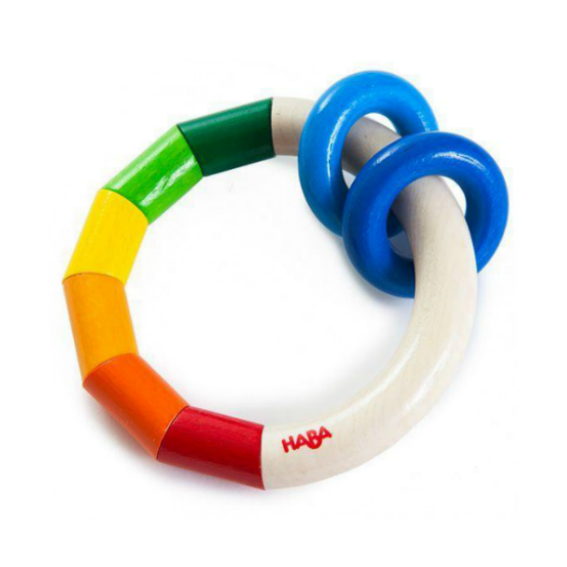12 Concepts To Elevate a Competent Teenager
Competence in adults is a prerequisite to reaching expert and personal success. Nonetheless what’s competence in kids? Competent kids are
able to cope with emotional challenges properly adequate to cope with the age-appropriate duties of each stage of progress, grasp them, and emerge with
higher confidence. They’ve the emotional intelligence to deal with themselves and to get along with others.
Children who see themselves as competent actually really feel succesful and extremely efficient. They’re additional extra prone to be resourceful, to think about in themselves, to attempt
troublesome challenges, and to exhibit resilience throughout the face of setbacks.
How will you help your child develop competence, which is de facto a mix of confidence, resourcefulness, perseverance, mastery, emotional intelligence
and totally different traits??
1. Let him try to do it himself from the earliest age.
 Rein
Rein
in your private impatience. That doesn’t indicate abandoning him to it. Stand by, smiling, capable of be helpful in irrespective of technique actually helps your
toddler — BUT preserve your mouth shut and your arms to your self apart from to supply acceptable encouragement, till you REALLY need to help bodily.
Clucking anxiously about how frightened you are as he climbs that play development may make you are feeling larger, and it’d impress the other mom and father on
the playground collectively together with your attentiveness, but it surely certainly is not going to help your child. In precise reality, it unintentionally limits him.
Merely ask if he is retaining himself safe, then stand by and spot him. Smile proudly. Say
“Check out you technique up there! Wow!”
(And if he falls, you’re there to catch him. Which is, in any case, what allowed him to attempt it.)
2. Help her assemble confidence by tackling manageable challenges collectively together with your assist.
Emotional progress researchers identify this “scaffolding,” which can very nicely be outlined as a result of the framework you give your child on which she builds. You
present one step at a time, or use inquiries to counsel each step, or simply spot her, which helps her to succeed when she tries one factor
new.
These small successes achieved collectively together with your help give her the conceitedness to attempt new points herself. Scaffolding moreover teaches kids that help is
on a regular basis on the market within the occasion that they need it. You want your kids to know that deep of their bones sooner than they hit adolescence.
3. Don’t check out him.
When you say “What’s this color?” and your toddler options appropriately, you get excited. Nonetheless you then positively preserve asking regarding the subsequent color and
the next, and finally you get to a color that he can not decide. To you, that is just one additional color you might be instructing him. Nonetheless to him,
that could be a failure. He’s dissatisfied you. You assume you might be instructing him colors. Nonetheless you aren’t. You might be instructing him that he’s not okay.
(Do you truly want to practice colors? Do it equivalent to you do the remaining, by using the names in frequently life. “Let’s get the purple one.”)
There could also be not at all a trigger to verify your child. And lecturing, drilling and testing aren’t the only strategies to point out. Children be taught when
they uncover for themselves.
4. Empathize collectively together with your child’s pleasure about achievements, as a substitute of evaluating her.
For many who identify Grandma in entrance of your child to report in your child’s latest achievement, you might be setting your child as a lot as worry that till she’s
good and precocious, she’s a disappointment. That creates a toddler who worries that she on a regular basis should impress these around her. For many who
inform her she’s smart, that makes it worse, because of she is conscious of that she just isn’t on a regular basis smart, and she or he wouldn’t know get smarter — it’s not
one factor she has administration over. As soon as we make a large deal about kids’ achievements, they actually really feel evaluated, and they also often worry rather a lot about effectivity
that they refuse even to attempt new points.
As a substitute:
- Contact upon what she did that was worthwhile: “You saved attempting until you obtain it. I actually like the way in which you not at all hand over!”
- Empathize with the fun she feels about her discovery or her achievement: “Wow! You discovered how to do that!”
- Encourage: “That may be a robust puzzle piece, nevertheless I see you attempting every home to see the place it fits. Ultimately, chances are you’ll uncover the becoming spot!”
5. Reward effort, not outcomes.
“I see you labored so laborious on this.”
“Inform me about your painting.”
Uncover you aren’t telling him what an essential artist he is. That’s an evaluation, sure to make him freeze up or flip him proper right into a reward junkie, wanting
outside him for any person to tell him he’s okay. Even when his painting is objectively good, the aim is never the product — you don’t
want him resting on his laurels on the age of six, or sixteen. And you do not want him to imagine he has to dwell as a lot as some earlier pinnacle
of feat. What you want is for him to keep up attempting, coaching, enhancing, and to be taught that robust work pays off.
6. Encourage errors.

As Ms. Frizzle of the Magic Schoolbus famously acknowledged, “Get messy! Take prospects!” Children who get the message that spilled milk is a matter
and there may be one correct technique to do points often end up with a lot much less initiative and creativity. Merely smile, hand her the sponge and say “We on a regular basis clear up our private messes. I’ll help.”
7. Don’t set him up for failure.
Should you step in for those who see failure ahead, or “let him be taught a lesson”? Always a troublesome identify.
Rescuing kids can forestall them from learning important lessons. Nonetheless kids who see their mom and father stand by and permit them to fail experience that
as not being preferred. As a substitute of learning the lesson that they should have practiced that clarinet, or study the directions on that science gear,
they be taught the lesson that they’re failures, that they can not deal with themselves, and that their mom and father did not care adequate to help them not
be failures or practice them to deal with themselves.
Nonetheless just isn’t stepping in “rescuing them?” That all depends on the way in which it is carried out. For many who take over the science truthful endeavor and
do half of it the night sooner than it’s due, that’s worse than rescuing: not solely does your son be taught that you’ll bail him out if he goofs off,
he learns that he’s incompetent.
Nonetheless must you observe, intervene early if important, and supply development to help him succeed, he’ll uncover methods to succeed as a substitute of fail. In
totally different phrases, help him each step of the way in which during which to arrange his ideas and his work, BUT resist the impulse to reinforce on the endeavor your self. He’ll
full the job vastly proud, and having found one factor about plan and execute a flowery endeavor.
8. Educate self-encouragement.
Evaluation reveals that kids who “converse” themselves by way of challenges hold calmer and are subsequently able to persevere when the going will get highly effective.
So model maxims to repeat as mantras. “Comply with makes glorious!” and “For many who don’t succeed, attempt, attempt as soon as extra!” and “I imagine I can, I imagine I can!”
work remarkably properly to deal with ourselves throughout the face of frustration.
When your son goofs a bit on the piano and has to start over, or your daughter strikes out with the bases loaded, they need an automatic interior
comforting voice to encourage and encourage them, not that harsh, self-disparaging voice. The good news is, the tone they hear from you will
grow to be their inside voice.
9. Model optimistic self-talk.
If one factor opposed about your child — or, equally important, about your self — begins to come back again out of your mouth, chew your tongue. Most mom and father
know larger than to say “What an idiot!” to their child (and most of them are able to stop themselves), nevertheless a surprising amount see nothing
mistaken with berating themselves that technique in entrance of their kids. Regardless of you model, your child can be taught and may emulate. Merely put together your self
to not do it. (It truly just isn’t good for you, each. Would you let anyone else converse to you that technique?)
10. Deal with irritating circumstances.
There’s a growth in child-raising philosophy that maintains that kids be taught biggest with reasonably priced doses of frustration. It’s true that each one of us
be taught from overcoming challenges, nevertheless we on a regular basis must ask, what’s an affordable dose? We moreover be taught biggest as soon as we experience success, which
motivates us to cope with tougher challenges. Mastery begets mastery. Failure items up a cycle of insecurity, giving up and additional
failure.
Your child will naturally develop the ability to cope with rising portions of frustration and nervousness as he makes an try tougher challenges.
Nonetheless these frustrations are inherent in rising up and are assured aplenty in life. There is no such thing as a such factor as a revenue the least bit to setting your child
up for extra frustration or opposed experience. In precise reality, he’ll see your doing so as proof of your lack of caring (which is on a regular basis translated
in his ideas as his lack of value.)
So when your child is coping with an issue that feels daunting, from cleaning up the spilled milk to starting his historic previous report, see your self as
his companion. Don’t do it for him, nevertheless associate with him, the equivalent technique you’d in case your three 12 months outdated was afraid of a darkish room. And when your
child does encounter frustration, remember the fact that your empathy will in all probability be a essential take into account his overcoming it.
11. Affirm your child’s potential to have an effect on the world.
Scale back the number of events your child will get the message that her actions don’t matter.Competence and feelings of mastery are about vitality and derive
from a toddler’s experience of herself as having an affect on the world. “If I stand on the stool, I can flip this light change and light-weight up
the room!”
All kids will experience reasonably priced limits to their vitality (“I’m unable to make the rain stop, and neither can Mommy”), nevertheless the additional your
child has options to make a distinction on the planet, the additional she goes to see herself as succesful.
12. Foster Obligation, Good Judgment, Optimism and Persistence
…all related traits that improve your child’s competence. For additional ideas on encouraging these traits, check out these sections on this
web page.






